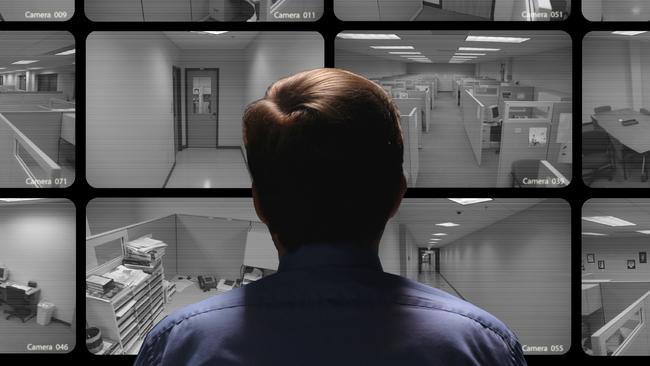Private security guards in the state’s public hospitals have the power to access sensitive patient records
EXCLUSIVE: Private security guards in the state’s public hospitals have the power to access sensitive patient records, and one was investigated over a claim it was used to “harass” a young woman.

SA News
Don't miss out on the headlines from SA News. Followed categories will be added to My News.
- Chemo bungle victim’s records disappear
- Two sacked, six other disciplined as medical records scandal widens
- Inquiry demand after medics spied on Cy Walsh records
- Second error discovered after inquiry into underdosing
- Cover-up claim over chemotherapy bungle
PRIVATE security guards in the state’s public hospitals have the power to access sensitive patient records, and one was investigated over a claim it was used to “harass” a young woman.
The Advertiser can reveal new allegations that sensitive information from medical records has been used to track and make contact with a patient, in addition to being inappropriately viewed by staff.
A formal complaint from a young female patient was lodged with the Queen Elizabeth Hospital in March last year, it can be revealed. The woman said a security guard had called, messaged and harassed her using a phone number which could only have come from her hospital records.
One security industry insider has also claimed improper access to records is “rife” among guards, who use it to regularly snoop on each other’s backgrounds and that of hospital patients.
Guards often used private data to then look up the social media activity of attractive female patients, the source said. It is also claimed that guards have accessed their fellow officers’ medical records, and later brought up the personal information in casual conversation.
The incident involving the young woman was investigated and dismissed by SA Health last year.
The female, who will not be named to protect her privacy, says she “went to the hospital to get my foot X-rayed, only to get calls and messages and harassed by the security guard who has no way of getting my number except going though my medical file, which also has my address”.
An SA Health spokesman said: “People in our hospitals who perform administrative roles, including some security staff, may have access to some personal information that allows them to do their job”.
The department would not comment on what controls were in place to prevent abuse of the records, or the circumstances around the dismissal of the young woman’s complaint.
Health Minister Jack Snelling is under growing political pressure to approve an independent judicial review into private records management, after revelations at least 21 staff have hacked into the information of patients including alleged murderer Cy Walsh and eight others.
Two of the staff caught hacking records in the past year have since been sacked.
Mr Snelling says unauthorised access was unacceptable and being treated “very seriously”. He believed the patients whose records had been hacked were being informed about the breach.
Yesterday, he told State Parliament “the buck does stop with me”, but he was not always immediately informed of privacy complaints raised with or investigated by the department.
“I can say probably what has happened in the past with paper records is that there have been breaches, and probably many breaches,” he said. “We would never know when and how those breaches would have been done because, with paper records, there is very little control.
“With regard to these electronic records, let us make something quite clear. We had a policy in place which detected this breach. “I am confident that this is not a widespread occurrence.”
Opposition health spokesman Stephen Wade said concerns about the actions of security guards “must be part of the broader review of patient record management”.
“The Weatherill Government has no alternative but to establish an independent judicial inquiry,” he said. “People using our hospital system must have their privacy protected.”
Meanwhile, SA Health has assured chemotherapy bungle victim Andrew Knox that his confidential medical records have not been destroyed as was yesterday feared.
Ten patients were given incorrect doses of a cancer drug at the Royal Adelaide Hospital and Flinders Medical Centre over six months from 2014. A subsequent inquiry this month referred eight clinicians to the Australian Health Practitioner Regulation Agency.
“I believe the integrity of my patient records has not been maintained and in fact I am concerned that critical records may have been destroyed,” Mr Knox, 66, said.
Southern Adelaide Local Health Network chief executive Belinda Moyes said: “No medical records of Mr Knox have been destroyed”.
“I can confirm his full record is available at Flinders Medical Centre and available for Mr Knox to view at any time.”
The private firm responsible for SA hospital security did not respond to a request for comment.


